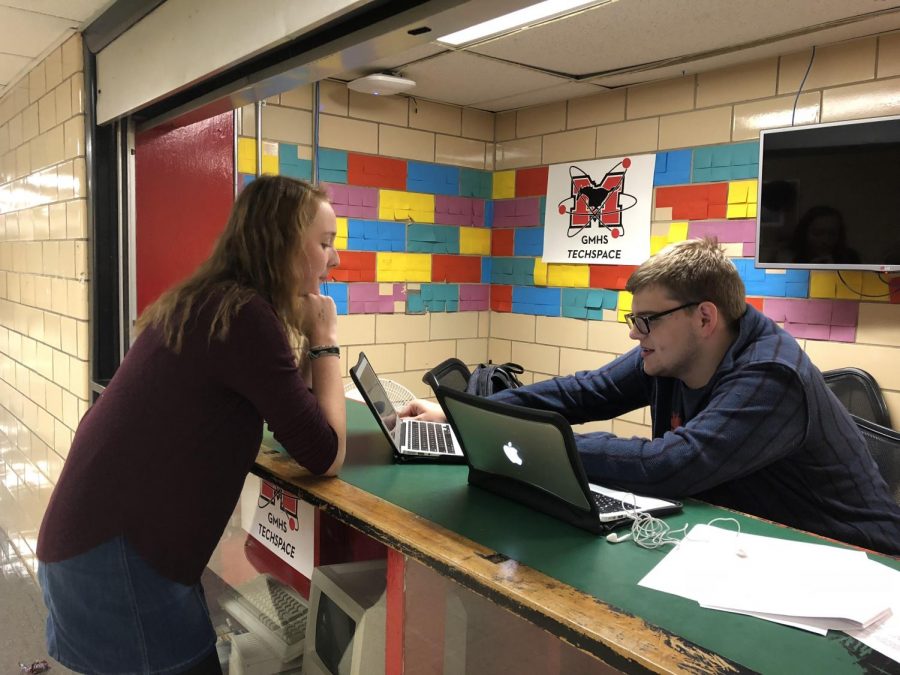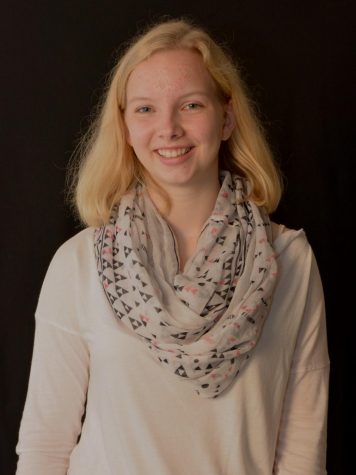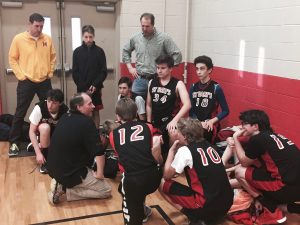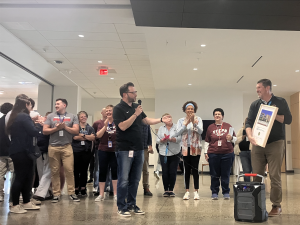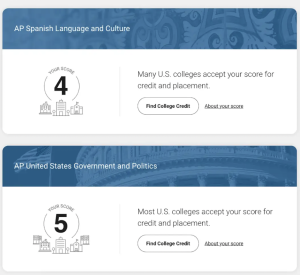Your new voice in GM tech
Student Advisory Board allows students direct involvement in decision making process.
Senior Zach Holmes (right) helps fellow senior Maggie Hicks resolve an issue with her Macbook. Holmes works helpdesk at the GMHS Tech Space every other day during Block 5. (Photo by Eleanor Kay)
November 1, 2018
Historically, whenever a student at Mason has had a qualm with the school’s various technology platforms (MacBooks, FCCPS* networks, etc.), there has been little means of working out the controversy. Options for redress of grievances have been limited to:
- Publishing op-eds, open letters, and issue-oriented commentary on The Lasso,
- Sending angry emails to ed tech staff or to school administrators requesting a change in policy, or
- Circumventing FCCPS security systems.
While a respectable and mature way of expressing discontent, seldom do Lasso articles catch the ear of school administrators, much less the GM IT department. Protests via email are similarly ineffective: Mason staff are understandably too busy to respond to student complaints about a blocked website. Finally, despite such activity violating FCCPS policies, students may feel that they have no other option than to skirt MacBook and network restrictions.
GMHS’ IT administrators certainly do not work with the goal of preventing students from using their computers. However, restrictions securing GMHS hardware and networks may prevent students from installing software we need, and in these cases there is no channel for formal recourse.
Work needs to be done to counter this environment in which some students feel their best option for securing necessary access rights is to exploit macOS bugs, damage their MacBook’s preinstalled software, and break FCCPS rules. So, I’m happy to announce Mason’s first step toward reconciliation: the formation of the Student Advisory Board. Though this board’s goals are far broader than technical discussion, the group will act as an outlet for discussion of issues related to MacBook restriction.
In working with our IT department as the initial student technical representative to the SAB, I plan to pursue three goals:
- Dialogue. In order to build a stronger relationship between our IT staff and the student body, we will institute three public Google forms which will be used by the student body to submit reports to the IT staff. These three forms could be used to:
-
-
- Submit websites which students would like unblocked, requiring a brief rationale for unblocking.
- Appeal blocks on applications, requiring a slightly longer process and justification of student need.
- Report material which should be blocked, in order to build a mutually beneficial relationship between students and the IT department.
- Freedom as a privilege. For a majority of students, our MacBooks work exactly how they need to: students can use their web browser to edit work on Google Drive, turn in work and participate in discussions on Schoology, etc. However, for students like myself, the restrictions in place pose a problem. As programmers we need to be able to interact with our computers on a deeper level, using tools like terminal and installing software packages at a moment’s notice (frequently of a type which cannot be installed through a Self Service-style tool). So, the first goal is to establish an Elevated Access program, under which students who have demonstrated themselves to be a) trustworthy and responsible and b) in need of greater access will be able to sign a contract and obtain access to MacBook administrator privileges. These students will not be given free reign to use their computers to any extent they desire—i.e. the standard systems used by FCCPS to monitor application and web traffic will still stand.
-
- A reasonable and good-faith loosening of regulations. We will remove blocking on of websites and applications which are blacklisted “just in case,” such as Terminal, which is not intrinsically bad and is required for almost every type of programming.
I and future technical representatives will act as the ambassador of the student body and the concerns students have. I’m open to feedback on how I can help make our school a more hospitable place in which students can use technology safely while being free of undue restrictions on their activity.
In addition to putting the above protocols in place, I’ll take into account specific student complaints about how our computers are administered.
Students are invited to email me at any time at [email protected] with concerns and commentary on how technology administration is executed at Mason.
I’m confident that by encouraging dialogue on technical issues on the Student Advisory Board, we can create a more hospitable environment in which to use GMHS educational technology systems.



